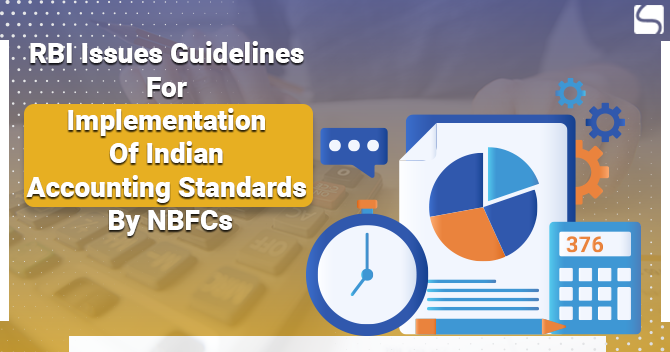A Complete Guide on NBFC Funding In India

Karan Singh | Updated: Mar 03, 2021 | Category: NBFC, RBI Advisory
In India, every business depends on funds to operate its day to day activities. Inadequacy in finances can delay the progress and compels one to shut down the business. In the case of NBFCs or Non-Banking Financial Companies, the requirement of funds get double. After obtaining NBFC Registration but without any banking license, Non-Banking Financial Companies renders credit services. Non-Banking Financial Companies do not depend on the Current Account Saving Account (CASA) deposits for raising NBFC funds in India. CASA deposits are only crucial for banks where banks are provided with licenses issued by the Reserve Bank of India (RBI) to accept money from the public. Non-Banking Financial Companies in India don’t have those fortunes, which means the Non-Banking Financial Companies need to choose another source of money supply that is higher than the deposits taken by banks where the rate of interest in between 4% to 6%. Scroll down to check more information regarding NBFC Funding in India.
Table of Contents
Importance of NBFC Funding in India
In India, any registered NBFC requires fundraising to function its business objective. Regardless of having a strong and robust business plan, Non-Banking Financial Company can fail due to lack of capital. Non-Banking Financial Company plays a leading role in the growth of the Indian economy as it catches the Fintech Companies attention. Hence, Fintech Companies collaborate with Non-Banking Financial Company for innovating technology-driven tools.
Non-Banking Financial Company must make sure the right allocation of funds in each of its sectors to achieve the financial stability goal. The agenda of NBFC funding in India should be carried daily since it’s a never-ending process.
NBFCs are incompetent to raise money at lower interest rates like banks from Reserve Bank of India. Thus, they finish up by raising funds at a higher interest rate, which further proportionally increases the hurdle rate to maintain NIM or Net Interest Margin between 1% to 3%. It makes Non-Banking Financial Company search for an alternative plan like External Commercial Borrowing, Public Bond Issuance, and so on.
Also, Read: What is the History of NBFCs?
Points to consider for raising NBFC Funding in India
There are two different measures that one has to take in the process of raising NBFC funding in India, and you can check the same below:
- Calculate the mismatch between liabilities and assets.
- Reducing the mismatch in liabilities and assets.
In case of Non-Banking Financial Company, the assets refer to the investments made by Non-Banking Financial Company for working as a financing institution such as equity, debt, and organized products whereas the liabilities defines the amounts owed by the parties that have supplied money to Non-Banking Financial Company to carry out financial activities.
Sources of Business Funding for NBFCs in India
Following are different sources of NBFC funding in India:

- Long-Term: Bonds are utilized as a traditional route to reduce the interest rate on the roots of funds. The rate of the coupon on the bond is chosen to reflect the rating profile of the NBFC and a return better than the G-Secs. In a few cases, tax-free bonds are also circulated for priority sectors like roads and infrastructure. The maturity profile of these bonds accords with the interest/repayment schedules of the investments made by the NBFCs (Also presented as assets on the balance sheet). Bonds can be allotted to retail investors, which is a chief advantage for NBFCs at bond placement.
- Short-Term: A Non-Banking Financial Company offers short-term loans can be issued by raising funds through Commercial Papers. These appear short-term unsecured notes which companies issue with three to twelve months of tenure. NBFCs with a net worth of Rs. 100 crores are eligible to list commercial paper as per RBI (Reserve Bank of India).
- Issue Bonds: Non-Banking Financial Companies can avail the money at the lower costs by issuing bonds and its very common practice which helps to reduce the interest rate on the sources of funds. Bonds can be issued to the retail investors, which is a huge benefit for Non-Banking Financial Companies during bond placement.
- Securitization of Loans: Non-Banking Financial Companies raised Rs. 2.36 lakh crores between Oct 2018 and Sep 2019 by selling their loans in the market through securitization. Non-Banking Financial Companies depend on securitization as an effective tool to manage liquidity, raise funds, etc.
- FDI or Foreign Direct Investment: One of the best options of NBFC funding in India is FDI (Foreign Direct Investment), the era of post-liberalization in the Indian economy. An incredible increase in foreign investors in the Non-Banking Financial Company was perceived. Recently, up to 100%, foreign investment is permitted under the instinctive route in Foreign Direct Investment. Thus, foreign investors don’t need approval from RBI and invest directly in Non-Banking Financial Company.
Different Services Provided by NBFCs
Following are some services which are offered by the NBFCs that have access to the automatic route in FDI:
- Merchant Banking
- Asset Management
- Factoring
- Underwriting
- Portfolio Management Services
- Stock Broking
- Venture Capital
- Custodian Services
- Leasing & Finance
- Housing Finance
- Credit Card Business
- Financial Consultancy
- Micro and Rural Credit
- Non-fund based activities
- Investment Advisory Services
- Forex Broking
- Credit Rating
- Money Changing Activities
The Government of India has announced new FDI norms for Non-Banking Financial Companies to quicken the non-banking financial sector. It eliminates the minimum capitalization norms. The quick increase of FDI (Foreign Direct Investment) will be beneficial for the Non-Banking Financial Company business model due to easier and faster sanctions of funds at some affordable rate of interest.
Conclusion
NBFC, unlike banks, lack the ability to raise funds, therefore raise funds at an excessive interest rate, thereby effecting the barrier rate on their funds to increase correlatively. This causes NBFC to look for substituted strategies for the distribution of funds to produce a higher return. In case if you need help on the NBFC funding in India, contact Swarit Advisors. Our experts will give you detailed information regarding NBFC Business Model.
Also, Read: Revised Regulatory Framework Proposed by RBI for NBFCs















